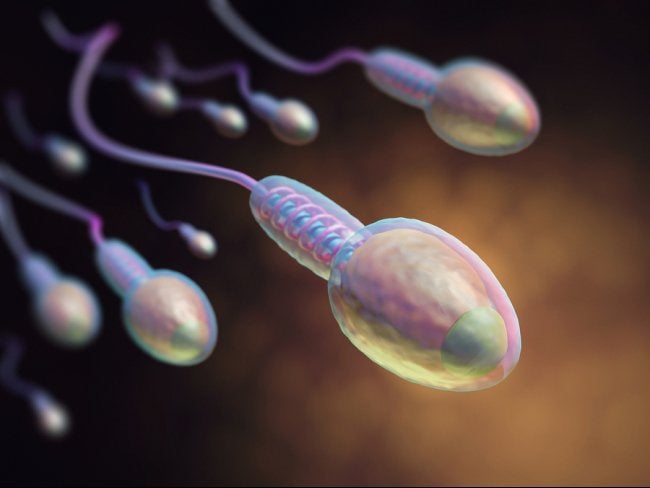-
What are Anti-Sperm Antibodies?

Are you and your partner struggling to become pregnant following vasectomy reversal surgery? Many factors affect the success rate of this procedure, including the potential development of anti-sperm antibodies. While this is a less common cause of male infertility, it’s still a factor worth exploring.
What are Anti-Sperm Antibodies?
Under normal conditions, sperm only exists within a man’s closed reproductive system. The tubules through which sperm travel don’t mix with other parts of the body. However, if sperm enters the bloodstream for any reason, the body’s immune system perceives the sperm as a foreign protein and produces anti-sperm antibodies in response.
Anti-sperm antibodies may cause sperm to clump together, reducing their ability to swim and subsequently reach the female egg. In rare cases, the antibodies can also cover the head of the sperm, rendering them unable to penetrate and fertilize the egg.
What Causes Anti-Sperm Antibodies?
In short, any time semen mixes with blood inside the body, anti-sperm antibodies are liable to form. Men may develop these antibodies for any of the following reasons:
- Vasectomy or other testicle surgery
- Tramatic testicle injury
- Prostate infection
Women’s reproductive systems can also produce anti-sperm antibodies if they have an allergic reaction to their partner’s semen. If present in the cervical mucus, these antibodies could damage or kill sperm as they enter the vagina. This condition is rare and not fully understood by the medical community.
Testing for Anti-Sperm Antibodies
An immunobead test (IBT) detects the presence of sperm-destroying antibodies in the blood, seminal fluid, or cervical mucus. Testing also indicates what part of the sperm is specifically affected. When performed on blood, an IBT can reveal whether the anti-sperm antibodies originate from the patient’s blood or reproductive system.
Because anti-sperm antibodies are relatively rare, and their presence doesn’t always cause infertility, your physician will likely review your medical history and conduct other tests before suggesting an IBT. Anti-sperm antibody testing should only be necessary if another cause of infertility can’t be found or the results of routine testing are inconclusive.
Treating Anti-Sperm Antibodies
While high levels of anti-sperm antibodies can make it difficult for some couples to get pregnant, their presence does not guarantee fertility issues. In fact, some findings suggest a low correlation between anti-sperm antibodies and the ability to conceive.
Still, if you’re having trouble getting pregnant, you may choose to pursue treatment for anti-sperm antibodies. Your options include immune response-lowering medication and assisted reproductive technology (ART), such as intrauterine insemination.
Dr. Joshua Green of the Center for Vasectomy Reversal is a leader in helping men overcome infertility problems. All infertility procedures we offer, including vasectomy reversal, are performed by a qualified surgeon using state-of-the-art equipment. Patients can expect concierge-level care and friendly staff interactions all along the way. To discuss your fertility concerns with Dr. Green, please contact our Sarasota, FL clinic at 941-894-6428 or schedule a free consultation online.
-
A Closer Look at Anti-Sperm Antibodies

You may already know that the body produces antibodies to combat pathogens like viruses and bacteria. These antibodies help keep you healthy. However, sometimes the immune system mistakenly attacks the body’s own cells such as a man’s sperm cells. Anti-sperm antibodies are one cause of male infertility. The presence of these antibodies does not automatically mean that you cannot father a child, however. Consider talking to a male infertility specialist about your options.
Understanding Anti-Sperm Antibodies
As sperm cells develop, antigens appear on the outer membranes. These antigens are proteins and it is in response to the detection of these proteins that the immune system may manufacture anti-sperm antibodies . Under normal circumstances, the immune system never detects the sperm antigens because sperm does not enter into the bloodstream. The blood/testes barrier, which is comprised of Sertoli cells, prevents the sperm from coming into contact with blood. In some men, the Sertoli cells may become compromised and the barrier may be breached, which allows immunologic stimulation. This can happen due to infection, physical trauma, or chemical-related injury. It’s worth noting that women can also develop anti-sperm antibodies. Why this can happen is not well understood.
Getting Tested
When a couple is experiencing infertility, one of the tests that a doctor may suggest is an anti-sperm antibody test. Women can be tested with a simple blood test. Men must provide a semen sample. Before getting tested, men must refrain from ejaculating for two days, but should not abstain from ejaculating for longer than five days before the test. Men will be given a sterile sample cup to ejaculate into and take to the clinic immediately afterward. The sample should be kept out of direct sunlight and at normal body temperature.
At the Center for Vasectomy Reversal, Dr. Joshua Green takes great pride in helping couples achieve their dreams of parenthood. He is a highly trained surgeon who specializes in performing infertility procedures in Sarasota. When you’re ready to take the next step toward becoming a father, give us a call at (941) 894-6428.
-
Understanding Anti-Sperm Antibodies
Male infertility has many possible causes, including some voluntary causes as with the case of a vasectomy. Sometimes, male infertility is attributed to anti-sperm antibodies. These antibodies are special proteins that attack the sperm in the semen, blood, or vaginal fluid. Both men and women may develop anti-sperm antibodies. These antibodies can then damage and kill sperm, making it difficult for the sperm to fertilize an egg.
You can hear why some men develop anti-sperm antibodies by watching this brief video. A doctor explains that after trauma or prior surgery to the testicles, a man may have developed these antibodies due to the exposure of blood into the testicles. This allows the man’s immune system to recognize the sperm and manufacture antibodies to it.
If you’ve been affected by male infertility and are considering having a vasectomy reversal in Sarasota, contact the Center for Vasectomy Reversal at (941) 961-4581. Dr. Joshua Green offers special long-distance consultations for patients from out of town.
Recent Posts
Popular Posts
categories
- Uncategorized
- Sperm Retrieval
- vasectomy reversal
- Emergency
- Dr. Green
- sperm count
- fertility
- male infertility
- MESA
- medical care
- low sperm count
- IVF
- male fertility testing
- anesthesia
- pregnancy
- sperm aspiration
- semen analysis
- post-vasectomy pain syndrome
- infertility
- VE
- anti-sperm antibodies
- older dad
- general anesthesia
- gender reveal party
- post-operative infections
- baby name
- parent
- baby's first year
- fertilization process
- spinal anesthesia
- ACS Fellow
- nutrition tips
- concierge-level care
- fertility planning app
- azoospermia
- out-of-town patients
- V-V
- post-vasectomy reversal
- conceiving
- vasectomy
- vasoepididymostomy
- smoking
- sperm quality
- baby registry
- infographic
- surgical care
- surgical consultation process
- prostate cancer
- baby gender
- family time
- COVID
- Baby Shower
- Child Care
- Halloween Costume Ideas for Babies
- Halloween
- Halloween Safety Tips
- Celebrity Infertility Spotlight
- Postpartum
- testosterone
- Father's Day
- Father
- Men's Health
- Thanksgiving
- Pregnancy Announcement
- Parenting Tips
- Sperm
